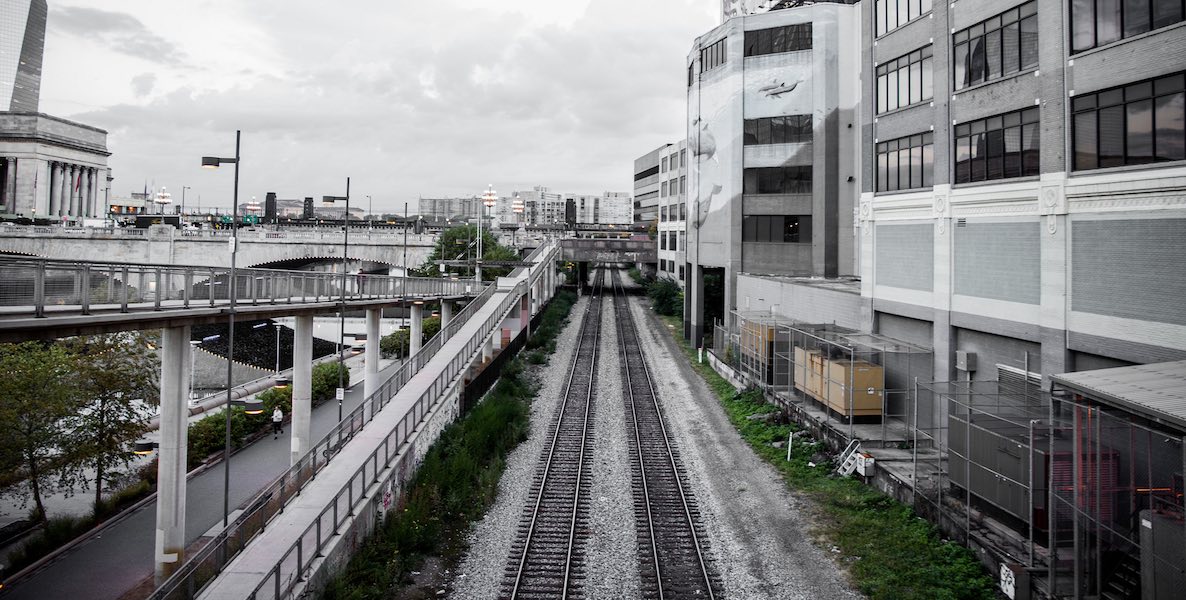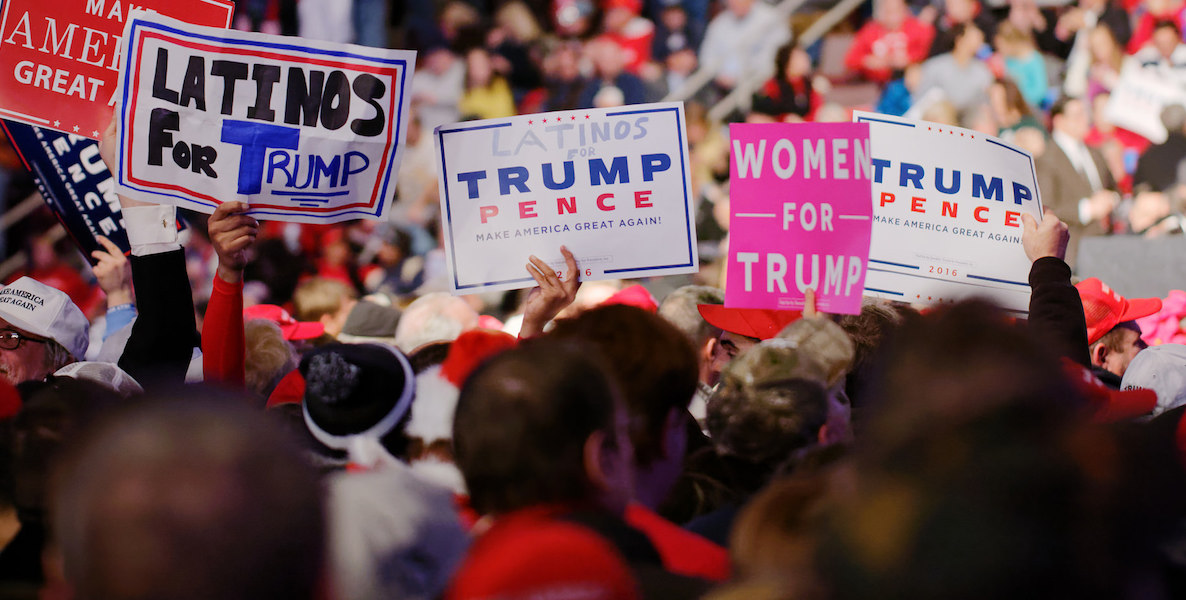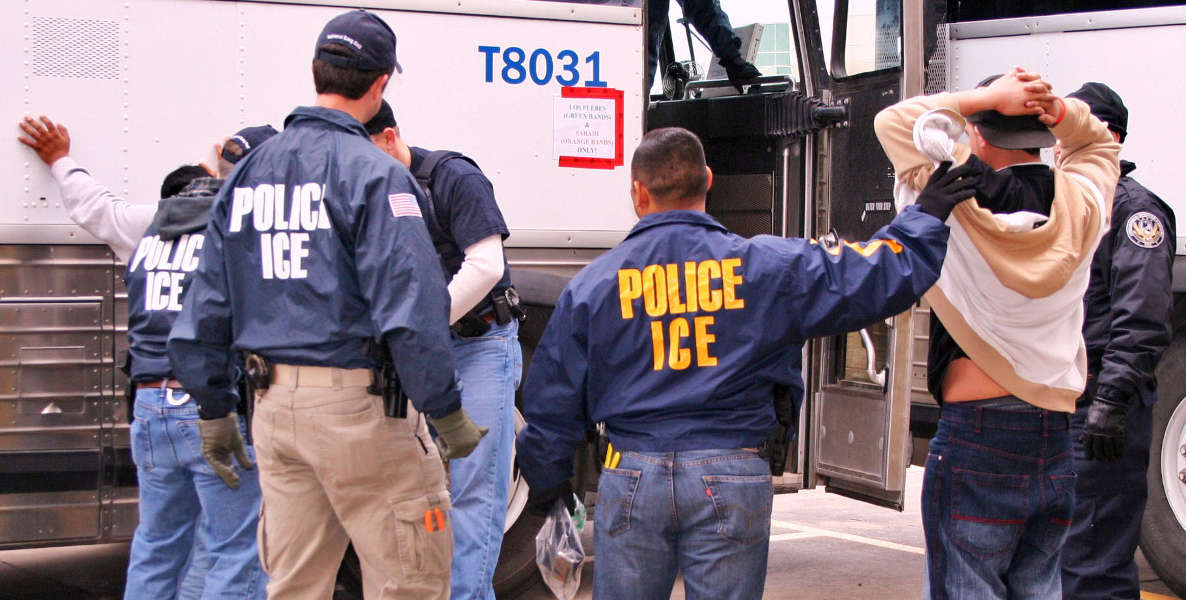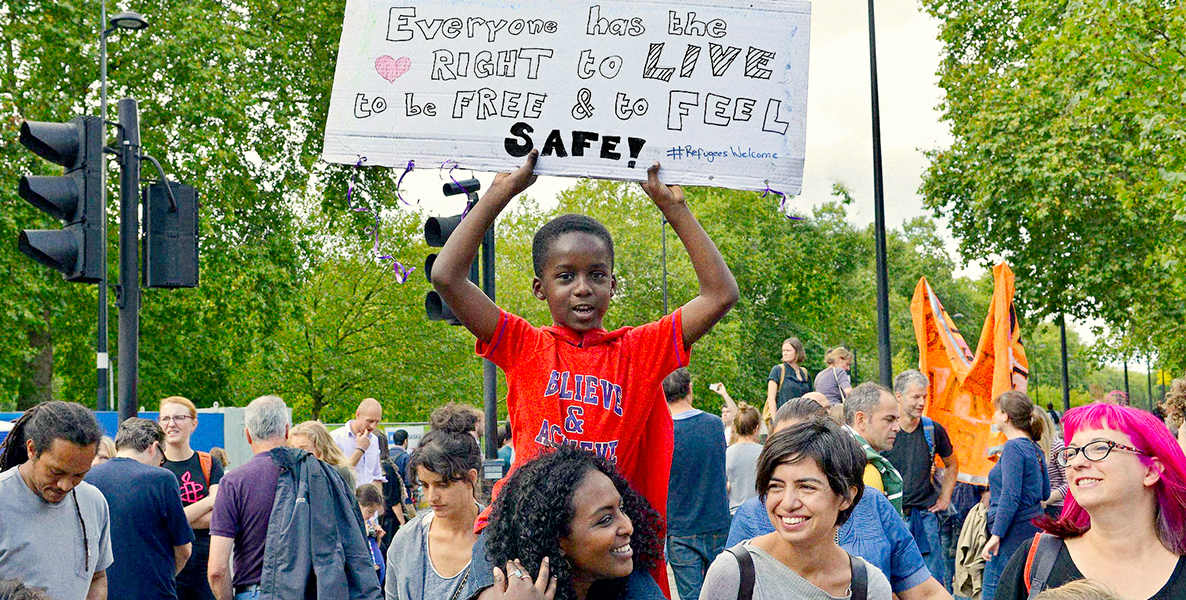Call me a hopeless optimist, but, ever since November’s election, I’ve been speaking to local progressives and have been discerning signs of hope.
Yes, there remains widespread fear that the violence of the Trump campaign rallies will translate into harmful policies under his administration—policies that will target groups of people and exact violence against them. But, bracing for a rollback of civil rights and civil liberties protections, social justice activists and advocates are organizing with a new sense of urgency.
Out of necessity, Trump’s racism, anti-semitism, Islamophobia and misogyny—and his threat to translate all of the above into policy—are helping reunite past civil rights alliances and overcome their differences. New alliances for social justice are being formed. Suddenly, it seems possible that the current political climate will help vulnerable populations and their allies overcome their differences to forge stronger coalitions than ever.
We’ve already seen how the immigrants’ rights movement has been energized by Trump’s election. Cities such as Philadelphia and New York City have defiantly pledged to remain sanctuary cities, refusing to cooperate with federal authorities rounding up undocumented immigrants for nonviolent offenses. Even the University of Pennsylvania, Trump’s alma mater, has emerged as a sanctuary for undocumented students by refusing to allow the feds on campus without a warrant.
“Before the election, a lot of our white allies have been vocally supportive but when it came to being visibly active, they shied away,” says Asa Khalif, Black Lives Matter activist and national organizer. “But now, they are part of the groups Trump is attacking. They have been forced to come out in the street. And now we need to build a coalition with our white allies.”
Blanca Pacheco, Assistant Director of the New Sanctuary Movement, says Trump’s rise has fueled the movement. “Now we know what we are fighting against, and when you know the threat you can prepare ahead of time,” she says.
Pacheco, whose organization is training 1,000 people to disrupt immigration raids, says the new allies joining the cause have made all the difference. “I think Trump winning is affecting a totally different section of the population—whites who were sympathetic with Black Lives Matter or immigration,” she says. Now, with other threats in the offing—everything from women’s health to Islamophobia—whites who may in the past have passively been supportive of New Sanctuary’s goals have joined the organizing.
Further, the rising specter of Islamophobia and anti-Semitism has brought alliances between Muslim and Jewish groups into focus, including the recent announcement of a Muslim-Jewish Advisory Council to fight religious bigotry and protect the rights of religious minorities. For the Jewish community—living with the trauma of the Holocaust and Nazi Germany—the prospect of the government creating a Muslim registry or rounding up undocumented Latino immigrants has triggered trauma. Rabbi Jill Jacobs, executive director of T’ruah, the Rabbinic Call for Human Rights, said that the nature of Trump’s appointees raises the specter of attacks on human rights and civil liberties. “Indeed, his administration is likely to make our work much harder, and may even threaten American democracy,” Jacobs says. “In our response to him, however, we have to overcome differences, form coalitions with unusual bedfellows, and remain focused on our long-term task, namely protecting the human rights of all people, including members of minorities.”
Meanwhile, Jacob Bender—executive director of the Philadelphia chapter of CAIR, the Council on American-Islamic Relations—says his organization has received numerous offers of support from outside the Muslim-American community since the election. The group has been monitoring Islamophobic hate crimes and conducting town hall meetings, education and outreach since the election. “I think the dire situation offers an opportunity for a broad coalition across religious, ethnic and racial groups,” Bender says.
Bender notes that his constituency consists of African-American Muslims and immigrant Muslims from the Mideast and Asia. “Just like American Jews have been surprised by the emergence [of Trump], immigrant Muslims who had done quite well in navigating through American society and getting good houses in the suburbs are suddenly seen as the fifth column. It must be a surprise and a shock,” Bender says. “To people who grew up in the terror of the Klan in the South, it is hardly a surprise.”

Get More From Every Story
We include boxes in nearly every story to help you take action. Click the boxes below to see how you can make Philly better.
The appointment of Steve Bannon as a senior White House advisor has provided an opportunity for Muslim and Jewish groups to find common cause, amid heightened concerns that America is about to enter a new era of authoritarianism and state-sanctioned racism. Jewish and Muslim activists led by the Jewish millennial group IfNotNow, which is opposed to the Israeli occupation, staged a protest against a Zionist Organization of America’s annual gala event in which Bannon was scheduled to speak. IfNotNow, which has been influenced by the labor, civil rights, Occupy and Black Lives Matter movements, also organized a protest against a Hanukkah party held by the Conference of Presidents of Major American Jewish Organizations at Trump’s Washington hotel.
“At the most overt level Donald Trump is not what we need,” says Todd Wolfson, associate professor at the Rutgers School of Communication and Information, and co-founder of the Media Mobilizing Project. “At a less overt level however, this is an opportunity that we must seize. We are divided at our dinner tables, in our communities, in our places of worship, in our cities and across the many identities and strategies through which we organize for a better future.” Wolfson argues that organizing needs to cut across identities and experiences, the type of efforts being undertaken by the 215 People’s Alliance, a Philadelphia-based multiracial collaborative dedicated to fighting for equity and justice in Philadelphia.
And the opportunities for coalition building across demographic groups will take place in the courts as well. Reggie Shuford, executive director of the ACLU of Pennsylvania, says that while his organization is committed to its founding principle of non-partisanship, it “has been tirelessly preparing for the potential legal battles that await if President-elect Trump follows through on his campaign promises.”
Meanwhile, Asa Khalif, Black Lives Matter activist and national organizer, says that, while white Trump voters need a wakeup call, white allies in the racial justice movement are waking up. “Before the election, a lot of our white allies have been vocally supportive but when it came to being visibly active, they shied away,” he says. “But now, they are part of the groups Trump is attacking. They have been forced to come out in the street. And now we need to build a coalition with our white allies.”
They say the enemy of my enemy is my friend, and politics make strange bedfellows. Choose your favorite cliché. But there is something to it all. If there is a ray of hope amid all the uncertainty, fear and anxiety that this election has created, it is that people are locating old friends and finding new ones, finding common cause and working together.
A poignant example of the coalitions forming in resistance to President Trump are the massive demonstrations and civil disobedience planned around Inauguration Day. Operating under the hashtag #DisruptJ20, protesters are planning civil unrest on January 20 in Washington when Trump takes the oath of office. The goal is to shut down the ceremonies, build capacity for community-based organizations, and set the stage for ongoing opposition to Trump’s agenda.
And January 21 marks the Women’s March on Washington. The goal of this diverse assemblage of women with “multiple and intersecting identities” is to send a message to the new administration that women’s rights are human rights and cannot be ignored. “The rhetoric of the past election cycle has insulted, demonized, and threatened many of us…and our communities are hurting and scared,” the march organizers state on their website, adding the march is the first step in unifying their communities and forming new relationships to create grassroots change.
The Women’s March will also take place concurrently in 97 sister cities, including Philadelphia. The Women’s March on Philadelphia will be held on the Benjamin Franklin Parkway. “For those who can’t make it to Washington, D.C., this March in Philly is an opportunity to show positive support and unity for not only women, but all those feeling they do not have a voice due to the rhetoric of this election cycle: immigrants, people of color, individuals with disabilities, the LGBTQ community, and those of diverse faiths,” said Emily Morse, organizer of the Philadelphia march in a statement. “While women are the focus of the march, our male allies are welcome and encouraged to attend to show their support, as universal equality stands to benefit all Americans.”
They say the enemy of my enemy is my friend, and politics make strange bedfellows. Choose your favorite cliché. But there is something to it all. If there is a ray of hope amid all the uncertainty, fear and anxiety that this election has created, it is that people are locating old friends and finding new ones, finding common cause and working together. Although time will determine how all of this plays out, the specter of Trump’s America is waking up communities like never before, and motivating them to band together and take action.
Header photo by Julian Stallabrass via Flickr





